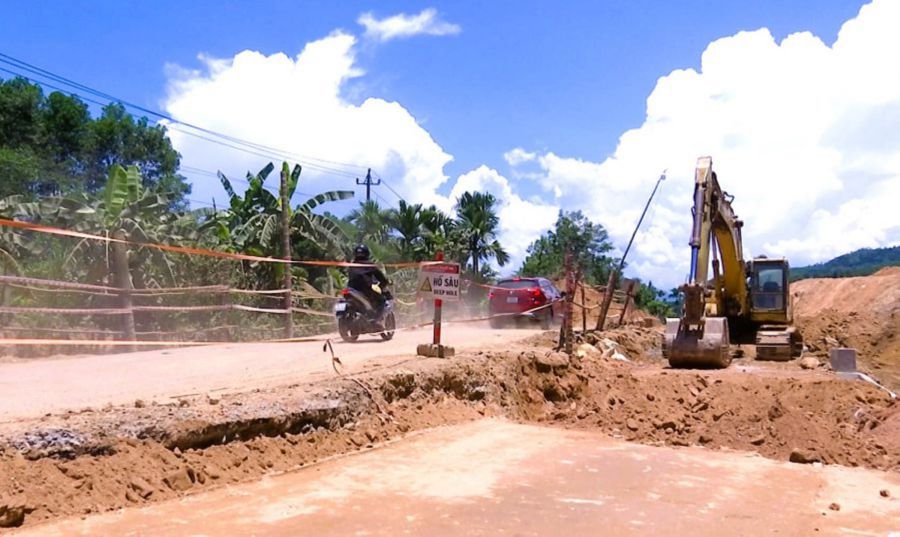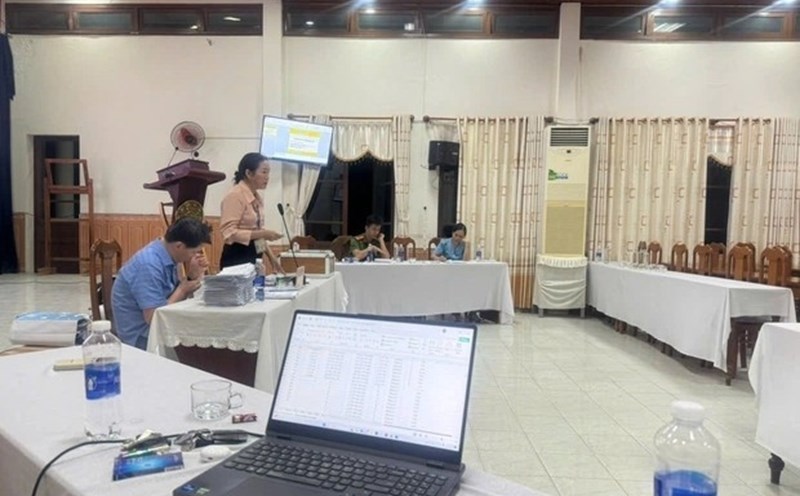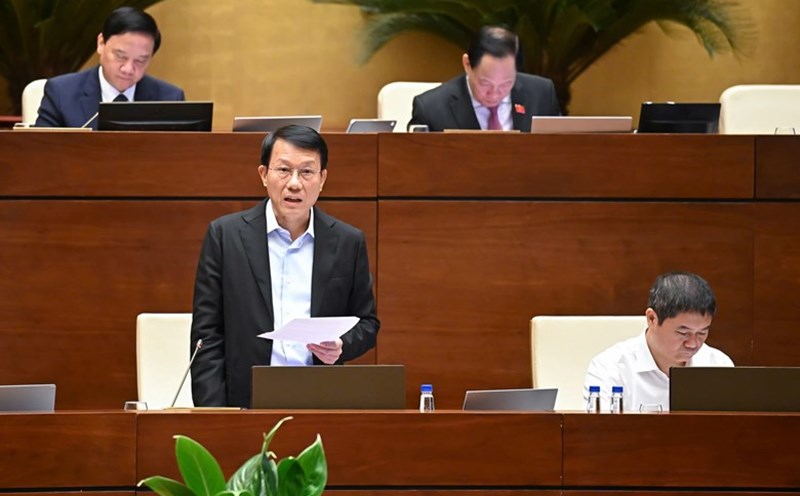Many projects are "thirsty" for materials, prices increase
The demand for construction materials (VLXD) has never been as great as it is today. The whole country is in the process of accelerating and focusing on implementing strategic transport infrastructure projects, economic zones, seaports, along with real estate and housing projects, all to realize the growth target of 8% in 2025. However, this major goal is facing a barrier, which is a serious shortage of conventional real estate supply.
In Da Nang, one of the economic locomotives of the Central region, the situation is at an alarming level. At the City People's Council meeting (June 24), delegate Le Van Dung - Deputy Head of the Urban Committee of the City People's Council - said that many key projects are facing difficulties due to lack of soil and sand for filling, while the price of materials has increased 2-3 times. This situation not only pushes up investment costs but also directly threatens the progress and quality of the project.
Director of the Department of Construction Nguyen Ha Nam explained: Although the city is trying to find a solution such as coordinating surplus land from other projects, this is only a temporary solution, unsustainable, especially when the main sand mines supplying the market are having problems with licensing or temporarily stopping exploitation.
The hunger for materials not only occurs in Da Nang but has become a burning issue in many Central provinces such as: Quang Nam, Quang Ngai, Binh Dinh.... From the North-South expressway projects, the section through the Central region - to local projects, everywhere is worried and worried about the price of sand and land. People are also struggling to build houses because of the daily increase in costs.

Unusual auctions and signs of manipulation
The imbalance between supply and demand is only part of the story. The remaining, more dangerous, comes from signs of manipulation, speculation and market manipulation, clearly demonstrated through unusual mining rights auctions.
Recently, in Quang Nam, Hoang Chau Sa Company Limited, a business that had just been established for more than a month with a charter capital of only 25 billion VND, won the auction of a sand mine worth more than 491 billion VND in Dai Loc district as a typical example.
According to the analysis of lawyers, with such charter capital, this enterprise cannot meet the financial capacity conditions under the Mineral Law (owner must be at least 30% of total investment capital). This raises doubts about the real purpose of participating in the auction: Is it to "hold a mine" and then transfer for profit, or deliberately push up prices to disrupt the market?
And this is not the first time. Previously, also in Quang Nam, the provincial police have initiated a criminal case related to a company that won a sand mine auction at a price more than 300 times higher than the starting price, showing that this is a systematic trick, causing serious damage to the State and genuine businesses.
In mid-June 2025, the Prime Minister issued a telegram, requesting ministries, branches and localities to take drastic action. The dispatch has clearly pointed out the reasons for the shortage of sand and price increase are due to bottlenecks in mining licensing, speculation, hoarding and market manipulation.
A series of urgent tasks have been assigned. The Ministry of Construction must closely monitor price developments and promote replacement materials. The Ministry of Agriculture and Environment is required to urgently reduce administrative procedures to the maximum, strongly decentralize the licensing of mineral exploitation. The Ministry of Public Security and the Ministry of Industry and Trade are assigned to strengthen inspection, investigation and strictly handle acts of speculation and market manipulation.
At the local level, tough moves have begun to appear. In Quang Ngai, on June 23, the government issued a document directing the police to closely monitor the mine auctions, ready to " handle on-site" if signs of manipulation were detected, and at the same time apply strong sanctions to businesses that won the bid and then abandoned the deposit. This is considered a strong solution, necessary to restore order.
Stabilizing the construction materials market requires comprehensive solutions and synchronous intervention. The removal of procedures to increase legal supply must go hand in hand with strict supervision, strictly handling speculation and profiteering. Only when the market is transparent and fair, will supply be unblocked, not hindering socio-economic development goals.










